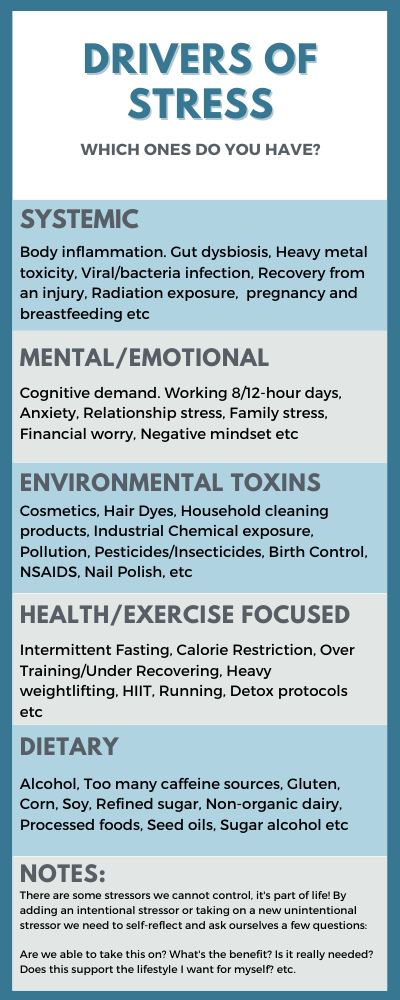Cortisol has received a bad rep as the ‘stress hormone’, and it’s true when it’s too low or too high, problems arise. In defence of cortisol – it isn’t the villain it’s made out to be.
Cortisol is an essential survival hormone – contributing to the regulation of the metabolism and hormonal balance (sex drive and reproduction), as well as optimisation of the immune system in fending off infection and inflammation.
Cortisol has two primary functions – Regulate and React.
In regulatory mode, cortisol helps promote the coordination of circadian events such as our sleep/wake cycle and food intake. Cortisol should peak in the morning allowing for a natural awakening where we hope one would wake up feeling ‘rested and refreshed.’ A healthy cortisol level will then gently fall throughout the day allowing for a deep and uninterrupted sleep that night.
In the reactive mode, cortisol does not have a predictable flow. The peaks of cortisol come in response to emotional or physical stressors an individual is encountering.
There’s no doubt that we live constantly “connected”. Technology has drastically increased our stress levels through the expectation to never “log out” or “shut down.” Even when you go on vacation and have an automated email response, chances are you’re still responding and completing tasks you’re accountable for.
Am I right?
Here is a chart of common drivers of stress we may all experience daily :

The body responds to stress the same way; whether you’re stuck in traffic or being chased by a cheetah – your body enters that flight or fight mode!
When responding to a temporary threat, this system usually works perfectly. When the threat is over, your body quickly resets to its former calm state. However, it stops working optimally when it’s triggered too often and/or never gets to shut off. That’s because we never give it a rest from always being on high alert. Because we never “turn off” neither does our stress response – and that’s where all the trouble begins.
Signs and symptoms of high cortisol levels:
- Fatigue.
- Weight gain (specifically around the midsection)
- Bruising easily.
- Swelling in the legs.
- Mood swings.
- Irregular periods.
- Mental fogginess.
- Muscle weakness.
- Poor sex drive/performance.
Signs of cortisol deficiency
- Extreme fatigue.
- Weight loss and decreased appetite.
- Darkening of your skin (hyperpigmentation).
- Low blood pressure, even fainting.
- Salt craving.
- Low blood sugar (hypoglycemia).
- Nausea, diarrhea, or vomiting (gastrointestinal symptoms).
- Abdominal pain.
Because regulating our cortisol levels is imperative for many important bodily functions, I will share strategies to support optimal cortisol function in another blog post to come.
Stress, cortisol, and adrenal fatigue, are topics that really hit home with me! If you want to hear how I dug my way out, watch Kayla’s Fat Loss Story that I shared in the heart of Covid.
If you need help addressing any of the topics I spoke about above or in my ‘Fat Loss Story’, feel free to reach out to me!
–Coach Kayla

